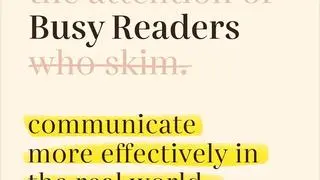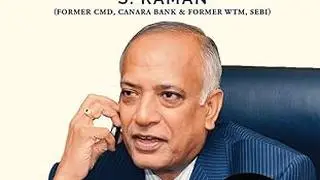Our historians have treated Sardar Patel (1875-1950) shabbily. Along with Gandhi and Nehru, he should have been rightfully considered an equal member of the pantheon of leaders who created the secular and democratic India we are so proud to belong to. Instead, he is consigned to the back pages of our history.
Patel was much more than just a strong man. Throughout his life, he was a calm, focused, and strategic individual with a reputation for taking bold and tough decisions and seeing them through. This becomes obvious to anyone who delves into Urvish Kothari’s selection of his writings A Plain Blunt Man - The essential Sardar Vallabhbhai Patel, starting with his succinct biography of the great man.
Sardar Patel was a self-made individual who led a hard and challenging life. His wife died young and he never remarried and brought up his two children by himself in tumultuous times that preceded India’s independence. He left a lucrative legal practice to throw himself into the freedom struggle.
Gandhi, whose most ardent follower he became, recognised his remarkable organisational skills and eye for detail. These were the very abilities Patel possessed in abundance and which India badly required at Independence to create a country of continental dimensions by bringing into its fold around 600 princely states, swelling, as the historian Ian Copland observed, “the area of the new Indian State by over half a million square miles and its population by nearly 90 million,” redrawing “the political map of the sub continent.” The credit for this is rightfully Sardar Patel’s, and, of course, that of his handpicked deputy, VP Menon.
Busting popular myths
Kothari’s selection gives us a very good idea of who Patel was while busting popular myths, the foremost being that he was anti-Muslim, something he never was. On the contrary, he fully understood that following independence the community had to be helped to adjust to new realities and that the Hindus had a duty to aid the process. As he states in a letter just prior to Independence,” I do not think it will be possible to consider Hindustan as a Hindu State with Hinduism as the State religion. We must not forget that there are other minorities whose protection is our primary responsibility. The State must exist for all, irrespective of caste or creed.” In a speech delivered on 4th November 1948, aimed at the RSS, Patel stated, “We must create an atmosphere in which everyone can live in confidence and security.”
Patel was no RSS sympathiser as sometimes alleged. He was aware of the danger it posed to India’s unity and strongly believed that the organisation had no place in government. As he informed Syam Prasad Mukherjee in a letter dated 18th July 1948, “The activities of the RSS constituted a clear threat to the Government and the State.” Elsewhere in this selection, it becomes obvious that Patel also felt that in the fraught atmosphere of a violent and bloody partition, while safeguarding the Muslims in India it would be imprudent to antagonise the majority Hindus - a point he frequently though obliquely makes in this volume.
Integrating India was Patel’s greatest achievement. That he adopted a carrot and stick policy to bring the princely states into the Indian Union comes through in this selection of Patel’s writings. He was aware that it would be imprudent to offend the princes whose capacity “for mischief on the part of Rulers…was far greater than one can imagine.”
Unlike Nehru, Patel was coldly practical about China. Left to him, it is obvious from this selection, that Patel would not have so easily conceded China’s suzerainty over Tibet as Nehru did and would possibly have tried his best to keep it as a buffer state. He makes this point in a letter of 7th November 1950 to Nehru, which must be read, as much for its blunt clarity as for its prescience.
Nehru and Patel clashed on many things. However, Patel never questioned the former’s primacy in Government. In fact, on many aspects of policy, he was in complete agreement with Nehru especially on developing India as a modern well-armed industrial state, repudiating Gandhi’s vision of India as a web of villages.
Patel’s tough side
On Kashmir, left to him, Patel would have been much tougher on Sheikh Abdullah who he considered - with good reason - to be perfidious and untrustworthy. Patel’s tough side comes through in this volume in the firm resolve he showed in bringing Junagadh into the Indian Union and the ruthlessly efficient manner in which he took over Hyderabad.
Patel recognised the need not to force Hindi on India. As he observed in a letter dated 14th December 1949, Hindi will have to contend with “the linguistic pride of various linguistic areas” and that the protagonists of Hindi “have to realise that a national language is not formed by fanaticism, nor is it imposed by statute, but grows consciously and sub consciously by the efflux of time with the inevitability of gradual recognition.”
One of the interesting aspects that comes through in this book is the shabby way Patel was treated in jail by the British in sharp contrast to the generous manner in which British-educated Nehru and Gandhi were, practically making their prisons almost homes away from home. In this regard, this extract from Kothari’s volume is telling: “On waking up I saw prisoners all around me. They had formed a queue…in order to go to the latrine; there was only one latrine. After relieving yourself in one you went into another row for water. This was a totally new experience and I gave up the idea altogether.”
Poor editing, shoddy referencing, and the absence of an index mar Kothari’s volume. However, it must be read, if only to restore to our memory what a great man Patel was and his central role in consolidating India into one country for the first time since Ashoka.
(The reviewer taught Public Policy & Contemporary history at IISC, Bengaluru)
Check out the book on Amazon here.









Comments
Comments have to be in English, and in full sentences. They cannot be abusive or personal. Please abide by our community guidelines for posting your comments.
We have migrated to a new commenting platform. If you are already a registered user of TheHindu Businessline and logged in, you may continue to engage with our articles. If you do not have an account please register and login to post comments. Users can access their older comments by logging into their accounts on Vuukle.